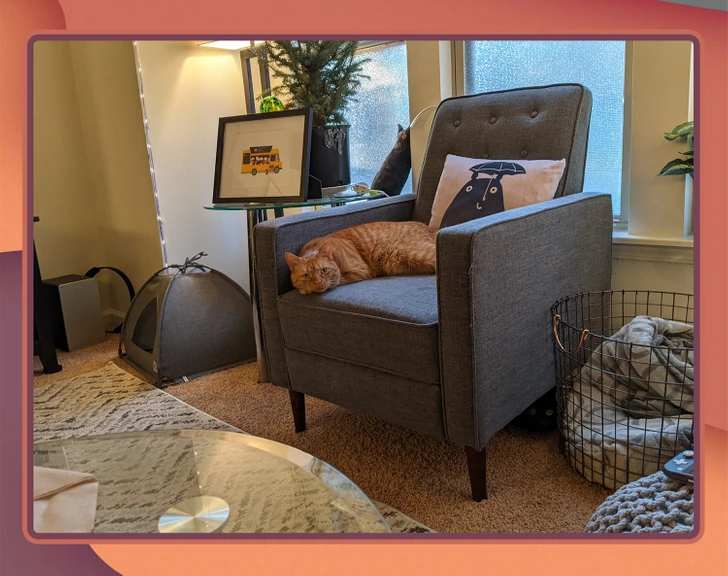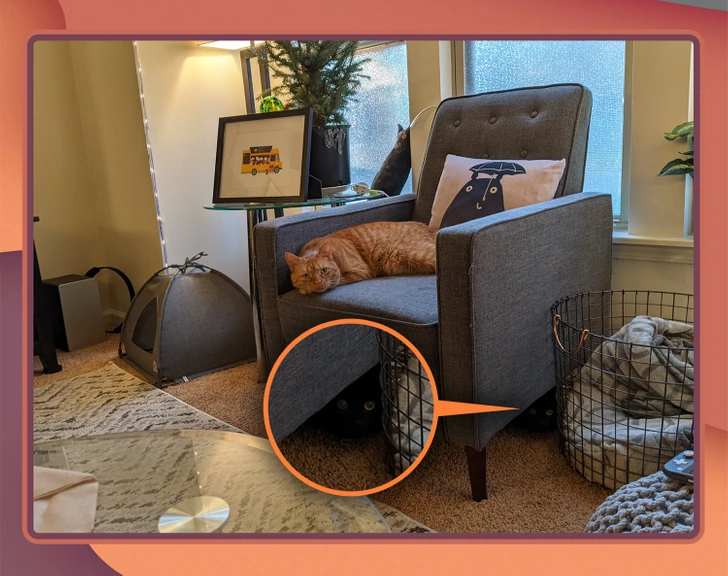1 Minute Brain Teaser: A victory is a victory, small or big! We are giving you a chance to feel the same happiness again by solving a complex brain teaser. Brain Teaser is a visual challenge to test reasoning, optical, and other abilities that further improve problem-solving abilities. Also, it will help you to develop a bond with your pals.
1 Minute Brain Teaser: Find the Second Cat Hidden In The Picture
Brain teasers increase resourcefulness, flexibility, and spontaneity, which promotes highly original and creative thinking. You'll need sharp eyesight and the capacity to pay close attention to even the smallest details in order to solve this visual puzzle. As a result, practising leads to improvements in detail-orientedness, which is useful in a number of real-life circumstances requiring accuracy and precision.
 Source: Brightside.com
Source: Brightside.com
Only 1 Genius Out of 100 Can Find The ODD Pregnant Couple In The Brain Teaser. 5 Seconds Left!
Look for the Brain Teaser answer here:
Divide the image into sections. Now go through each row and column to avoid any hints. Eventually, you will improve your analytical and reasoning abilities, enabling you to evaluate numerous situations.
Oh!
I forgot to mention only 13 seconds are left…
Tick
Tock
Tick
Only A High IQ Genius Can Move The Right Car To Clear The Traffic In 54 Seconds. 1 Attempt Left!
Enough of suspense and the low-key music in the background, let’s jump to the answer.
Brain Teaser tests human tendency to solve problems. This puzzle is a wonderful exercise for the team. When a team works on a mission, they can genuinely come together, contribute, relax, and communicate simply and freely.
Lady on the Right or Left? Can You Guess Who Is Carrying More Water In This Brain Teaser? Good Luck!
Do you still need help? Please look at the image below to be sure about the answer.
 Source: Brightside.com
Source: Brightside.com
The best mental exercises for enhancing special cognitive and problem-solving skills that can be applied in both professional and personal preferences are brain teasers. Numerous studies have demonstrated that you get better at these fascinating visual puzzles the more you practice them. They help with brain stimulation, psychological development and various qualitative and quantitative skills.
Comments
All Comments (0)
Join the conversation